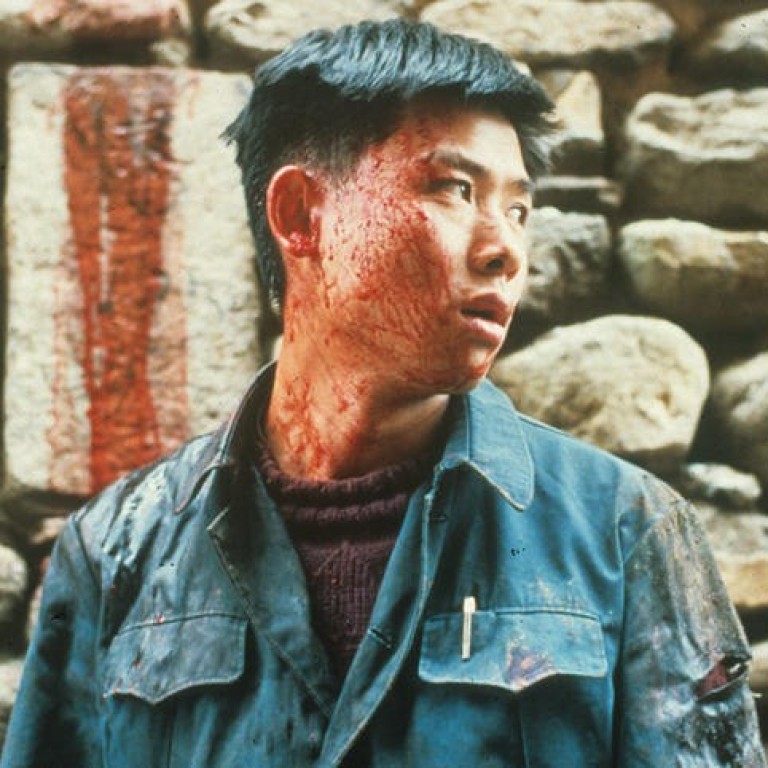
China’s Fifth Generation filmmakers are officially in favour, decades after their debuts
- Li Shaohong’s 1990 film Bloody Morning is the latest movie from the group of auteurs to have been restored
- Recent screenings reflect an official willingness to rehabilitate controversial classics
In a section dedicated to restored classics at this year’s Shanghai International Film Festival, the state-run China Film Archive screened Li Shaohong’s 1990 film Blood Morning, a loose adaptation of Gabriel Garcia Marquez’s 1981 novella Chronicle of a Death Foretold.
Set in a remote, impoverished village, the story revolves around the murder of a schoolteacher who had been wrongly accused of having “stolen” the virginity of a village girl.
A non-linear reconstruction of a killing motivated by misplaced fury, the film remains every bit the chilling, hard-hitting social critique that consolidated Li’s standing among China’s “Fifth Generation” directors.
“The story, images and sentiments of Bloody Morning still boast a power that moves viewers today,” says Zuo Heng, deputy director of the China Film Archive’s cinematic culture research department. Its poignancy is the reason the archive restored the film – a process that was completed just in time for the screenings, last Monday and yesterday, at the Shanghai Film Museum.

Bloody Morning is the archive’s latest screening of restored works by the Fifth Generation auteurs. Zuo was at the Cannes Film Festival last month to present a restored version of The Horse Thief, Tian Zhuangzhuang’s 1986 film about mortal struggles and spiritual redemption in Tibet in the 1920s.
The film was met with widespread approval at Cannes, where it premiered with endorsements from Martin Scorsese (“My choice for the Number 1 film in the 90s,” he wrote) and appearances by the director and the cinematographer, Hou Yong. The screening also received extensive media coverage in China.
Preceding Bloody Morning and The Horse Thief was the archive’s restoration of Chen Kaige’s 1987 film King of the Children, which premiered at the Beijing International Film Festival in March. Also in the pipeline is Red Sorghum, the 1987 award-winning debut of Zhang Yimou, another Fifth Generation stalwart.
“We chose to focus on this group of directors because there was something really special in the imagery of their films,” says Zuo. “What they wanted to do back then was to create their visual representation of China. It’s something born out of a passion for art and culture in the 1980s, something which gave these films their special artistic touch.
“Both Chinese and international audiences have been expecting the completion of these restorations for a long time, so I’m sure these films could now be shown more widely and become more influential around the world.”
While hailed as an artistic landmark in Chinese cinema today, the Fifth Generation’s work was met with official disdain in the 80s. Bloody Morning is a case in point: in a 2013 interview with the Phoenix New Media, Li said her film had been distributed to cinemas across the country when the authorities abruptly cancelled its release.
Having made the movie while on the payroll of the state-owned Beijing Film Studio, Li said she was never given an explanation of why her film was yanked from cinemas. “I was young and very headstrong, so I decided to stand outside the Film Bureau every day, even in the bitter wintry gusts, because I felt they should tell me something,” she recalled.
But nobody did. “I said I really didn’t understand what mistakes I had made, and whether there would be a text or something I could look at [...] but they just said, ‘Stop waiting outside, there’s no use to that.’”
Her frustration was perhaps understandable: in the same interview, Li recalled how her studio-commissioned directorial debut The Case of the Silver Snake – a 1988 crime thriller about a sadistic film projectionist who sets deadly snakes onto his victims – was officially denounced as an ultra-violent “negative example” just eight months after its state-endorsed run in cinemas.
Tian had more luck making The Horse Thief – but only marginally. Despite making the film with the approval of Xi’an Film Studio – and in this case, under the aegis of its famously progressively head, Wu Tianming – Tian was summoned to meetings with censors and told to cut scenes involving “backward” Tibetan rituals. He was also ordered to include a brief text, at the start of the film, explaining how the story happened before 1950 – the year Chinese Communists descended on Tibet and proclaimed its “liberation” from feudalism.
The rehabilitation of Bloody Morning and The Horse Thief by the authorities perhaps serves as a lesson about the fluctuating nature of China’s censorship policies, and how – to quote Fidel Castro’s speech at his trial for treason in 1953 – history would eventually absolve the conscientious and just.
It’s just a matter of when, and how.

